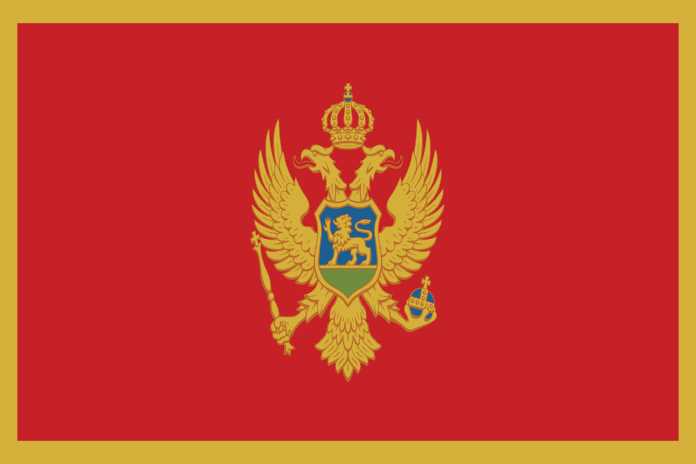Boycotting Will Not Benefit Citizens or the Economy
The Minister of Economic Development, Nik Đeljošaj, expressed that boycotting domestic companies won’t benefit citizens or the economy. He emphasized his opposition to the boycott, asserting that populism should not have a platform.
“We must purchase domestic goods and support local products. Montenegro doesn’t need populism or careless remarks by politicians. Instead, we ought to concentrate on domestic production, provide support, and enhance competitiveness,” stated Đeljošaj during a panel discussion titled Trade Boycott – Who Wins and Who Loses? at the Faculty of Economics.
He underscored the importance of implementing incentive measures, as the objective should be to maintain businesses and preserve jobs instead of shutting down operations and leaving thousands unemployed.
“Montenegro is a small economy heavily reliant on imports. We are susceptible to external factors globally, and the war in Ukraine has been a significant contributor to rising inflation. We are working on measures to combat inflation and support local production,” remarked Đeljošaj.
He reiterated his dedication to purchasing domestically, labeling it the only viable route for progress.
“The targeting of Voli is not beneficial for either the country or Montenegro. We must take pride in our companies. I welcome every new business operating in Montenegro. We cannot rejoice when they operate at a loss, failing to pay taxes or salaries. In a nation that has experienced factory closures and poor privatization choices, I cannot endorse a boycott of domestic enterprises. That would be entirely misguided and must not be tolerated,” asserted Đeljošaj.
He articulated that attacking local companies will not serve the interests of the citizens or the economy.
“As a society, we need to put a stop to this trend and not allow populism to thrive, particularly when it harms citizens and economic growth. We oppose the boycott and I urge everyone to contribute towards preventing it,” Đeljošaj added.
He emphasized his focus on bolstering the economy rather than supporting retail chains to safeguard citizens’ living standards.
Đeljošaj cautioned against the foolish remarks attributed to politicians.
“We must explore ways to improve our competitiveness and enhance the living standards of our citizens,” Đeljošaj concluded.
Dragan Bokan, the President of the Board of Directors of the Voli Trade Company, mentioned that this is the first occurrence he has witnessed regarding boycotts targeting a primary company.
“We are the largest producer in the agricultural sector and a significant meat producer in Montenegro,” Bokan pointed out.
He emphasized that no one should exploit a particular situation for personal gain, nor does anyone hold the right to undermine the Montenegrin economy.
“I harbor no ill will toward anyone; we are merely defending ourselves against overwhelming adversity. I perceive the recent remarks as malicious and ultimately damaging,” Bokan stated.
He disclosed that Voli is experiencing an increase in profits due to heightened sales volumes, although costs have also risen significantly.
“If sales don’t increase, we must raise our margins. Prices are excessively high, and the primary reasons lie beyond our control,” remarked Bokan.
Bokan articulated that the boycott is not merely an act of populism but an attempt to destabilize the entire economic framework.
“Our operational costs are surging; without growth in sales this year, we will have to raise prices to safeguard ourselves. The government has never stated there would be exemptions from profit tax. Why would anyone contemplate destroying their own economy?” Bokan queried.
Bokan noted that the gross trade margins in Montenegro are the lowest in the region.
“In Serbia, the average margin is 26.9 percent, in Bosnia and Herzegovina it stands at 23.9 percent, whereas the EU average is just over 25 percent; in contrast, Voli’s gross margin is 24.33 percent,” Bokan detailed.
He also highlighted that the overall tax burden in Montenegro, excluding VAT, in terms of excise and customs duties, is 16.06 percent higher than in Croatia.
Bokan called on Lidl and other major European chains to enter the Montenegrin market promptly, asserting that the market is open for business.
“Who in Montenegro benefits from this kind of lobbying by Lidl? Why are such high-ranking officials in the government involved? The implications are not favorable for the Montenegrin economy. Imagine if a government official endorsed Voli in such a way,” Bokan commented.
He indicated that this collaboration entails informing local producers about a possible decline in purchases as a result of the boycott.
“We have conveyed that we would reduce purchases proportional to the decline in sales volume,” Bokan added.
Milutin Đuranović, the President of the Board of the Association of Food and Agricultural Industries at the Chamber of Commerce (PKCG), remarked that he sees no justification for politicians not supporting the purchase of domestic products.
“Being an import-dependent nation means we also import inflation. We must focus on production. Take electricity as an example; its price is lower than in the region due to local production. If we halt electricity production, prices will rise,” Đuranović explained.
He asserted that sustainable development cannot be achieved without government support for the budget.
“The state must guarantee investment profitability in agriculture through budgetary assistance and ensure food production. This reality has not been acknowledged in past decades, leading us to our current predicament,” Đuranović concluded.
News


